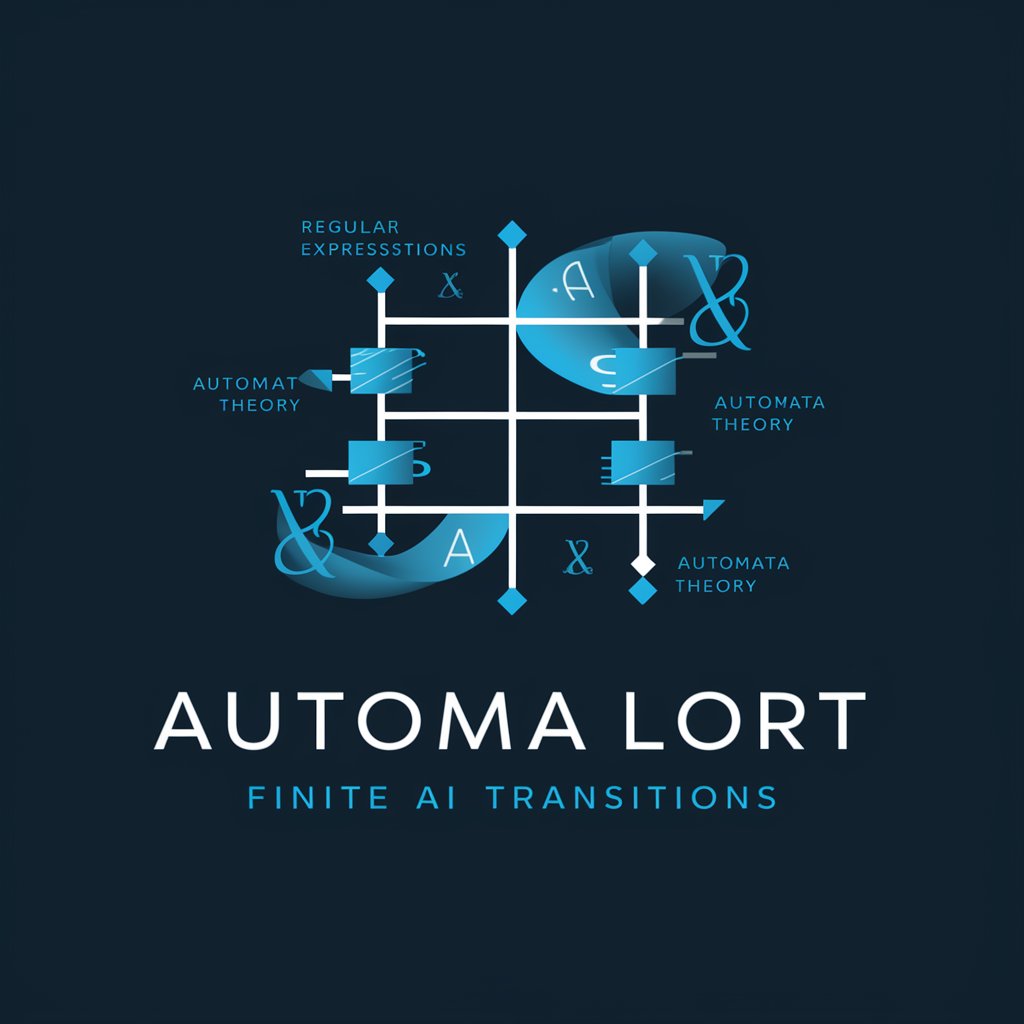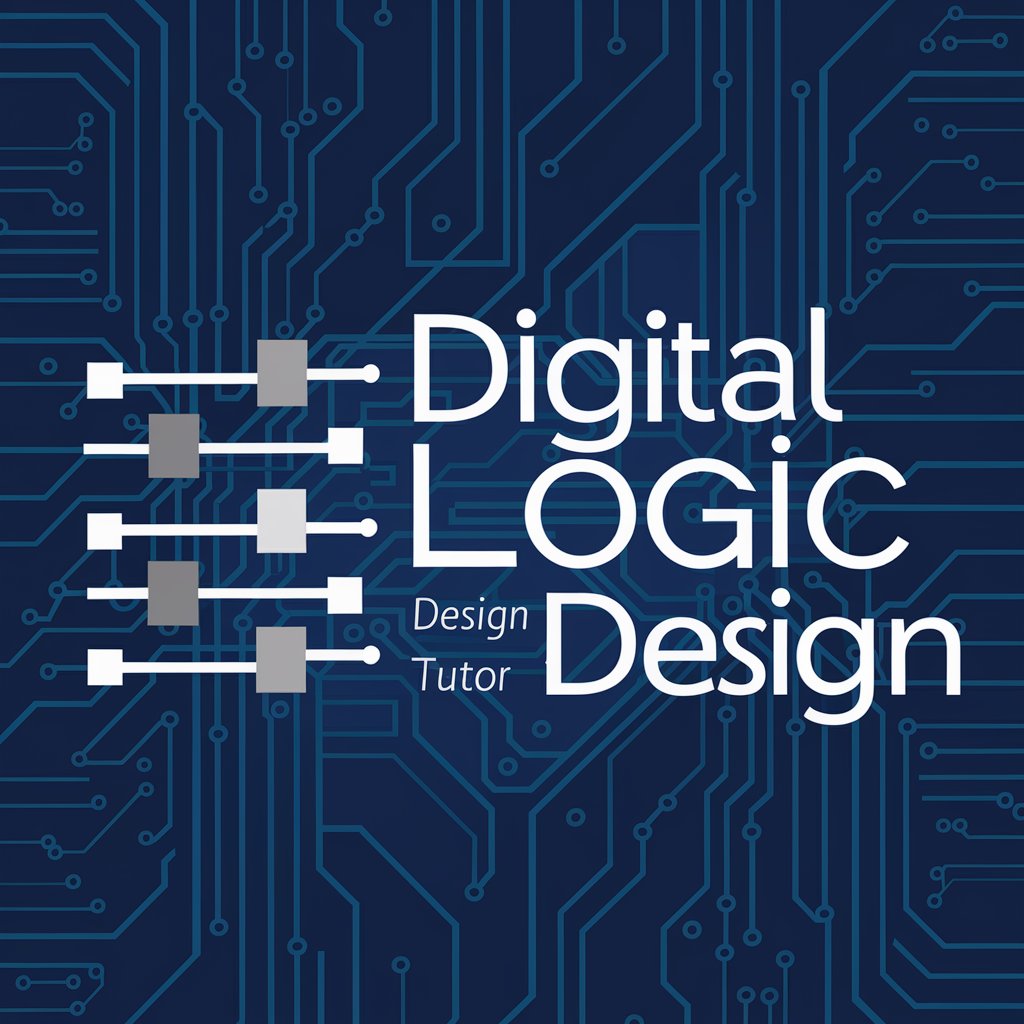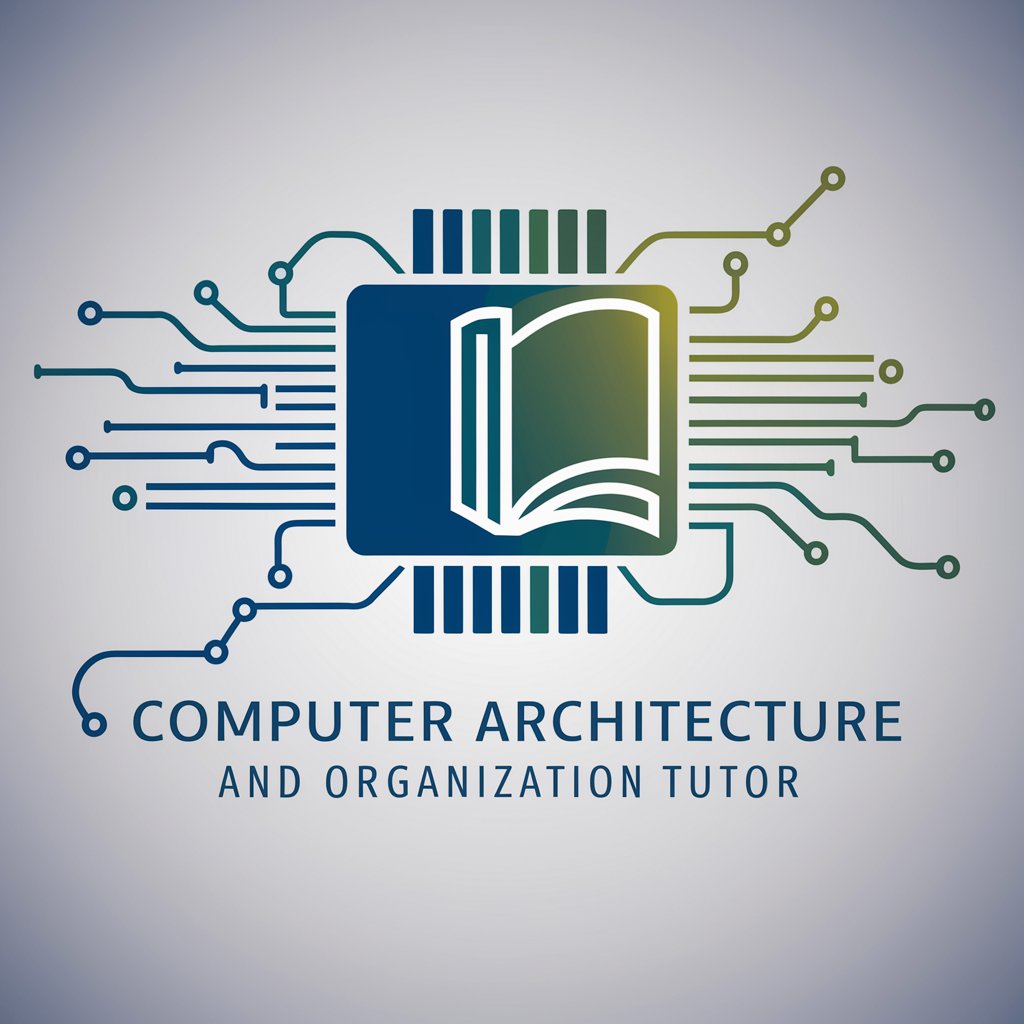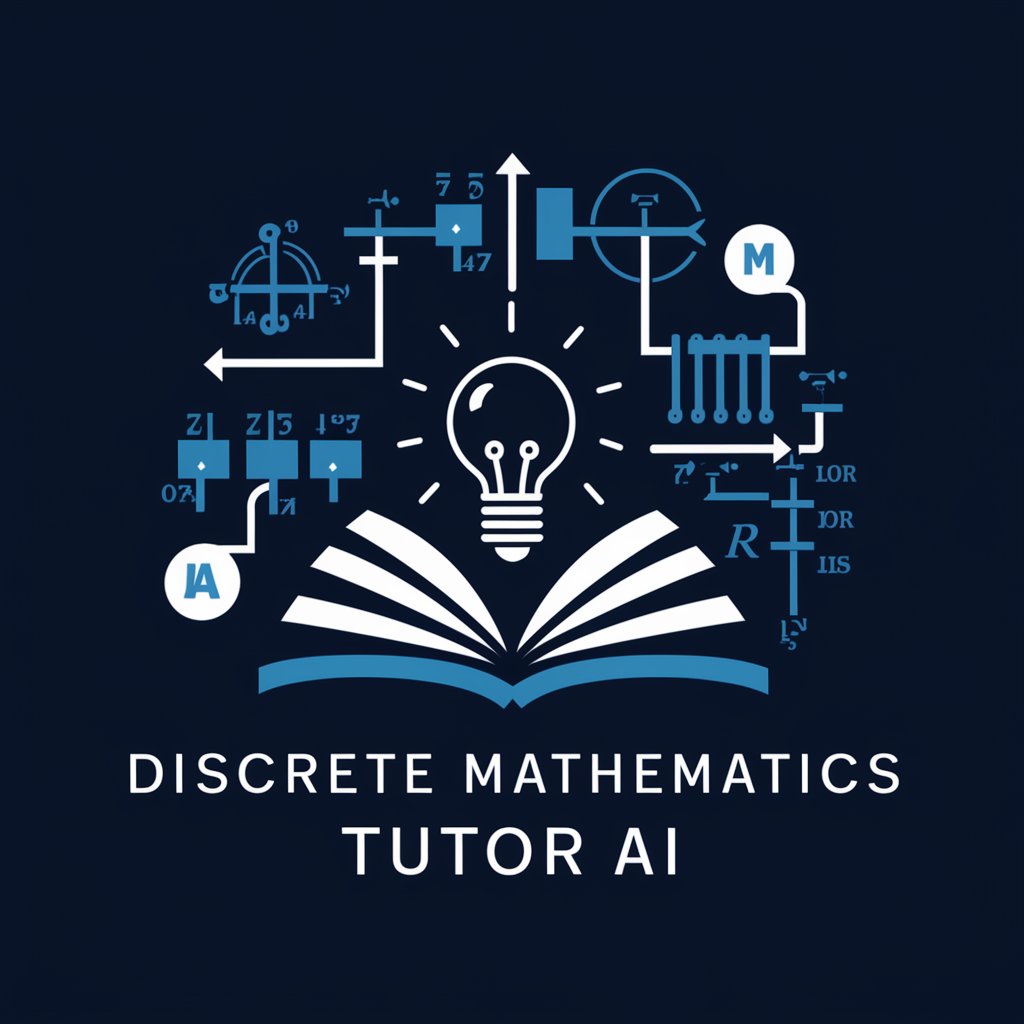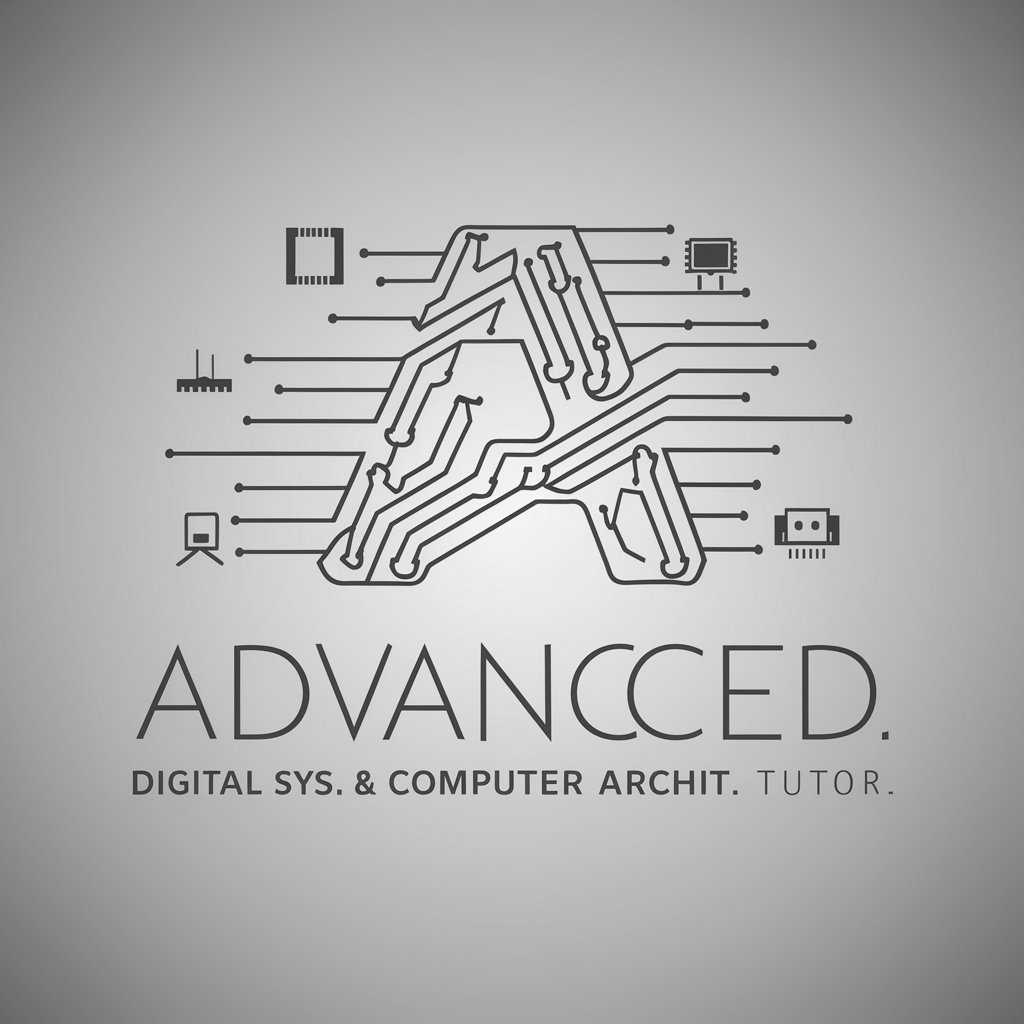
Automata Theory Tutor - Automata Theory Learning Aid
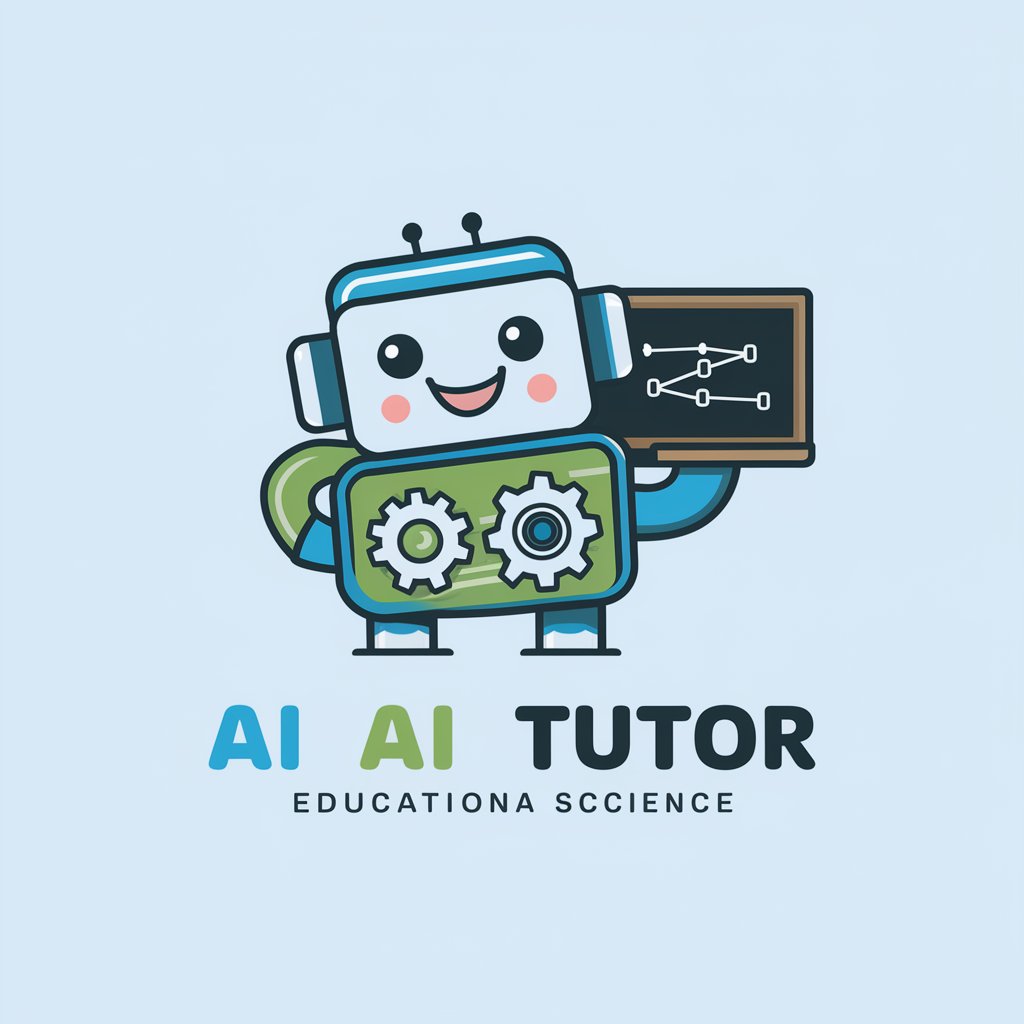
Hello! Let's dive into automata and language theory.
Master Automata Theory with AI
Explain the concept of deterministic finite automata.
How do context-free grammars relate to programming languages?
Can you describe the differences between regular and context-free languages?
What is the significance of Turing machines in the theory of computation?
Get Embed Code
Introduction to Automata Theory Tutor
Automata Theory Tutor is designed as an expert system in Automata and Language Theory, tailored primarily for students pursuing a Bachelor's degree in Computer Science. This tool aims to demystify the complexities of topics such as finite automata, context-free grammars, Turing machines, and computational complexity. By drawing from a foundational textbook, 'An Introduction to Formal Languages and Automata', it provides example problems, solutions, and detailed explanations. Its design focuses on simplifying concepts without sacrificing accuracy, steering clear of unnecessary technical jargon to make theoretical concepts more accessible. Through practical applications and relatable examples, it strives to enhance students' understanding and application of Automata Theory. Powered by ChatGPT-4o。

Main Functions of Automata Theory Tutor
Explanation of Theoretical Concepts
Example
Explaining the concept of finite automata, including deterministic and nondeterministic finite automata, with examples of how they can be used to model simple systems, such as a turnstile in a subway system.
Scenario
A student is struggling to understand how deterministic finite automata (DFA) differ from nondeterministic finite automata (NFA). The tutor provides a clear, concise explanation, followed by an example of a DFA that accepts binary strings divisible by a certain number, and an NFA example that recognizes strings containing a specific pattern.
Problem Solving and Solution Guidance
Example
Guiding students through the process of designing a Turing machine for a given problem, such as deciding a language or performing a computation.
Scenario
A student needs to design a Turing machine that computes the sum of two numbers. The tutor outlines the steps to create the machine, including the definition of states, transitions, and the tape's layout, providing a step-by-step solution process.
Clarification of Complex Topics
Example
Offering detailed explanations on the Chomsky hierarchy, illustrating the differences between regular, context-free, context-sensitive, and recursively enumerable languages.
Scenario
A student finds the distinctions between different classes of languages in the Chomsky hierarchy confusing. The tutor clarifies these distinctions with examples of languages that fall into each category and explains the importance of the hierarchy in theoretical computer science.
Ideal Users of Automata Theory Tutor Services
Computer Science Undergraduates
Students pursuing a Bachelor's degree in Computer Science who are taking courses in Automata Theory, Computational Theory, or related subjects. These users benefit from the tutor by gaining a deeper understanding of course material, assistance with homework or project work, and preparation for exams.
Self-Learners Interested in Theoretical Computer Science
Individuals who are self-studying theoretical computer science and wish to gain a solid foundation in Automata Theory and related areas. These users benefit from structured explanations, example problems, and the ability to explore topics at their own pace.

How to Use Automata Theory Tutor
Start Free Trial
Begin by accessing a free trial at yeschat.ai, enabling you to explore the features without needing to log in or subscribe to ChatGPT Plus.
Identify Your Learning Goals
Clarify your objectives with Automata Theory Tutor, whether it's understanding basic concepts or tackling advanced topics in automata theory and formal languages.
Explore Topics
Navigate through various topics such as finite automata, context-free grammars, Turing machines, and computational complexity, based on your learning goals.
Interact and Practice
Engage with the Tutor by asking specific questions, requesting examples, or solving problems to reinforce your understanding of automata theory.
Utilize Feedback
Use the Tutor's feedback on your queries and problem-solving attempts to refine your understanding and address any misconceptions.
Try other advanced and practical GPTs
Image Text Transcriber
AI-powered text transcription from images

Consultant Prodigy
Empowering your business journey with AI insights

Mckinsey Partner-マッキンゼーパートナー-
Empower Your Decisions with AI-Driven Insights

スクコン
Empowering education businesses with AI-driven insights
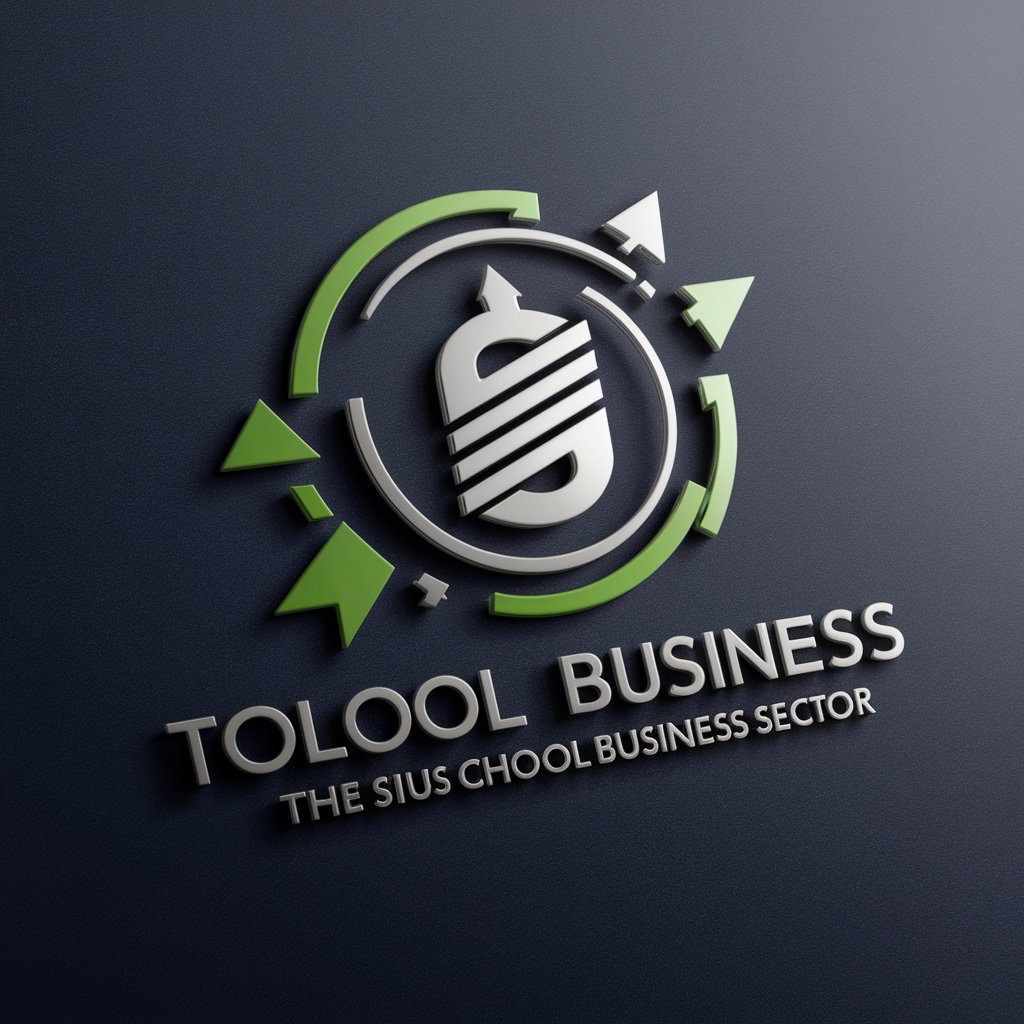
Revisor Jurídico da Let
Streamlining Legal Processes with AI

2024年データ別競馬予想
Elevating your betting strategy with AI-powered race predictions.

Transcription to Notion
Seamlessly transform audio to organized notes

Audio to text
Transforming speech into text, powered by AI
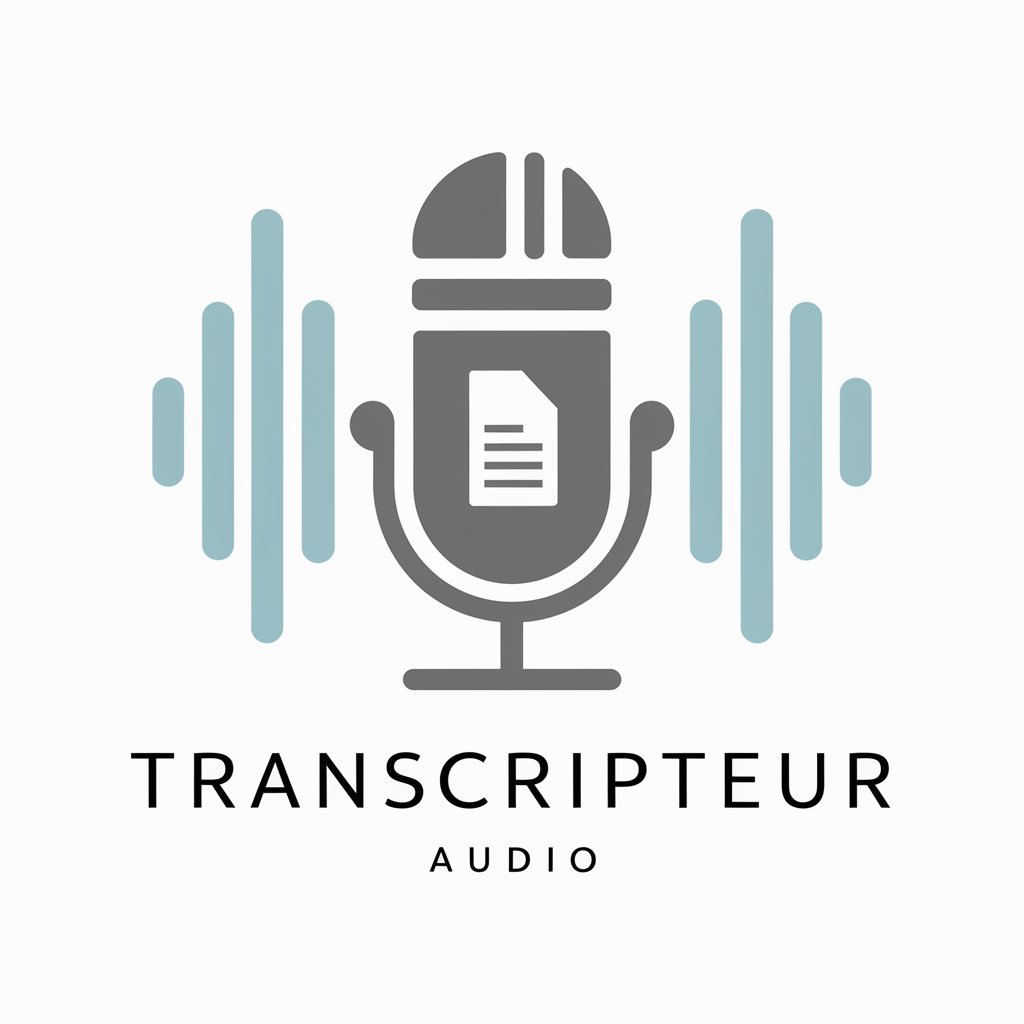
Explorations in American Popular Culture Tutor
Uncover the nuances of American culture with AI-powered analysis.
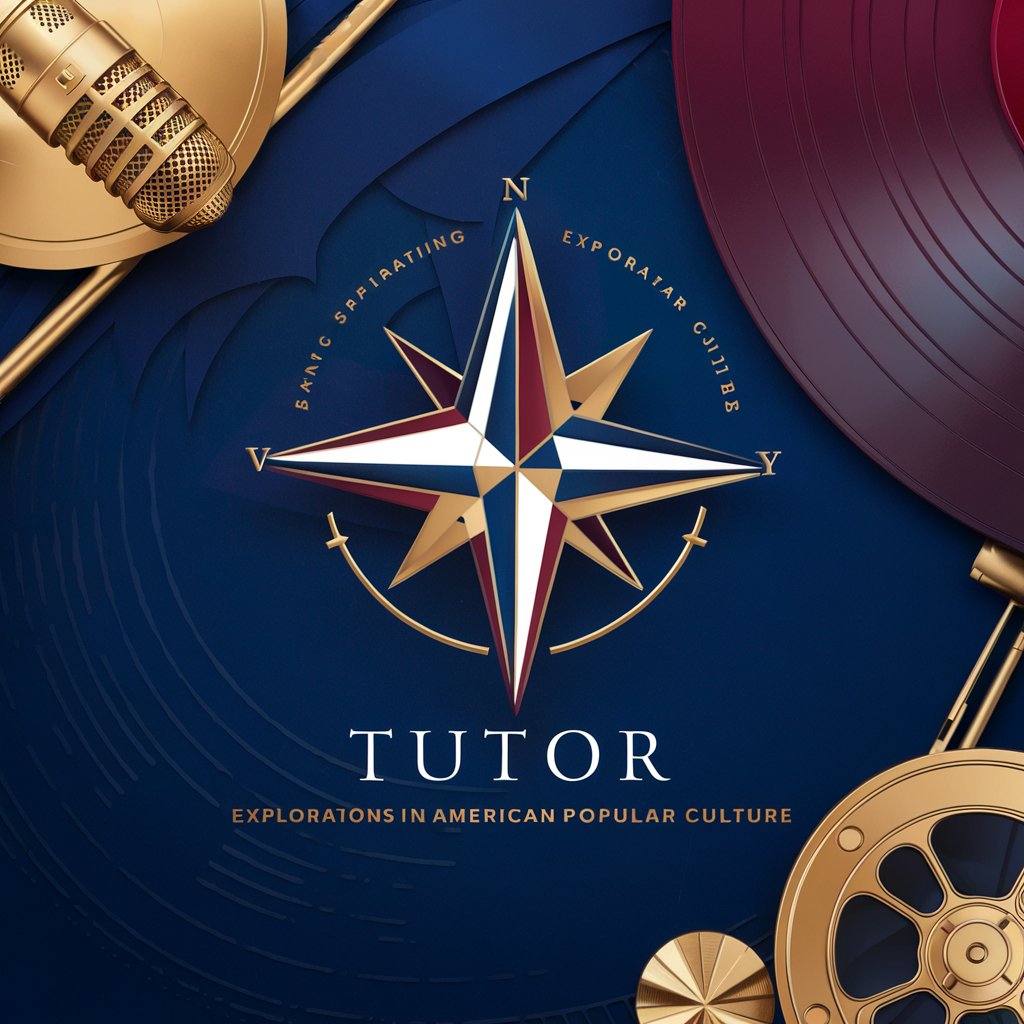
Dating Coach
Empowering Your Love Life with AI

Garden Delight Bistro
AI-Powered Plant-Based Culinary Guide

TLDR
Summarize Text Instantly with AI
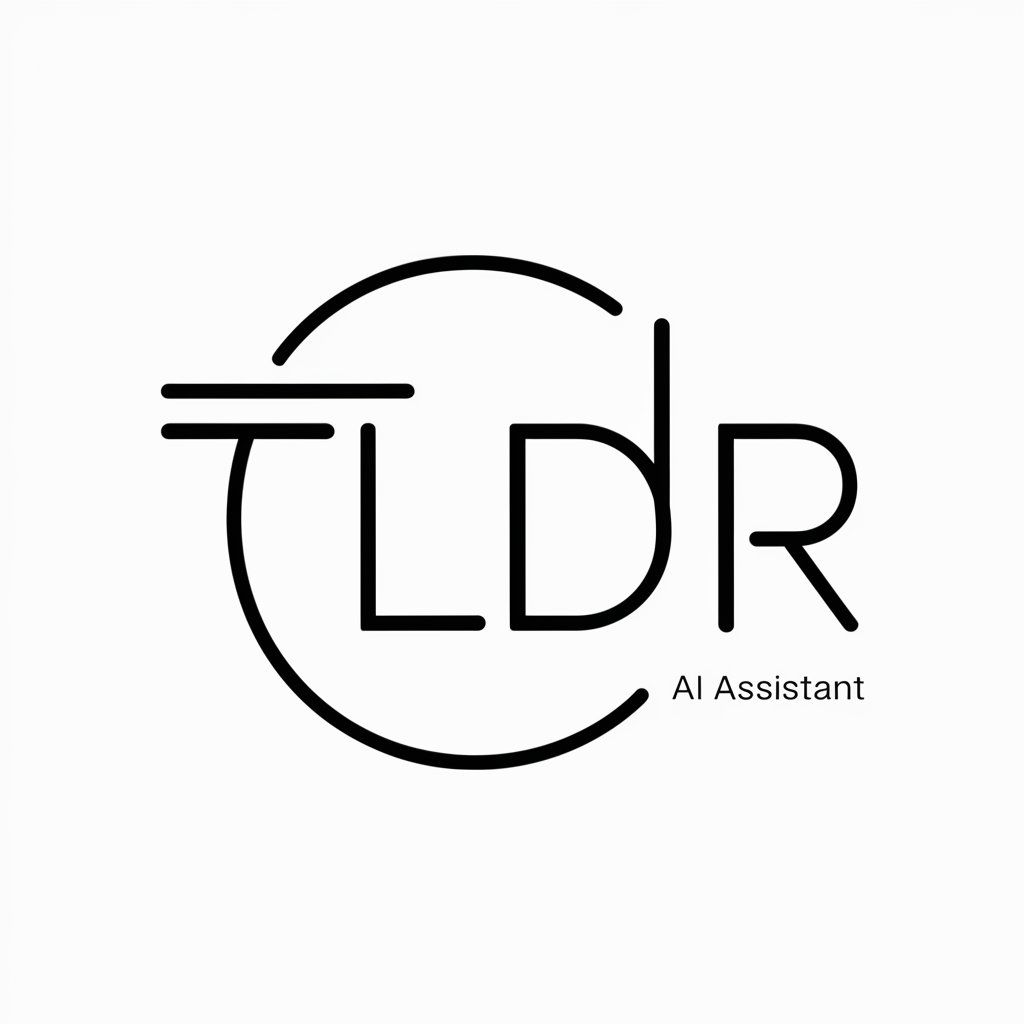
Automata Theory Tutor Q&A
What topics can Automata Theory Tutor cover?
Automata Theory Tutor can cover a wide range of topics within automata theory and formal languages, including but not limited to finite automata, context-free grammars, Turing machines, decidability, and computational complexity.
How can Automata Theory Tutor assist with homework?
Automata Theory Tutor can provide explanations, step-by-step solutions, and examples to help students understand concepts and solve homework problems related to automata theory and formal languages.
Can Automata Theory Tutor help prepare for exams?
Yes, by offering a thorough review of key concepts, problem-solving techniques, and customized practice questions, Automata Theory Tutor can help students prepare for their exams in automata theory and related subjects.
Is Automata Theory Tutor suitable for beginners?
Absolutely, Automata Theory Tutor is designed to cater to learners at all levels, including beginners. It introduces basic concepts in a clear and understandable manner before progressing to more complex topics.
Can Automata Theory Tutor provide real-world applications of automata theory?
Yes, Automata Theory Tutor emphasizes the practical applications of automata theory and formal languages, explaining how they relate to fields like computer science, linguistics, and engineering.
